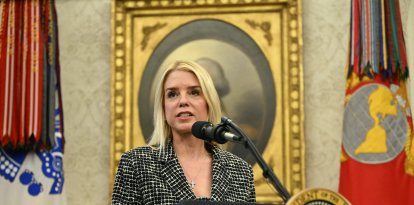After Trump victory, Israel fears 'revenge' from Biden-Harris administration
The Republican was Prime Minister Benjamin Netanyahu's candidate of choice, but the Biden-Harris administration will remain in power until Jan. 20, during which time it is likely to settle accounts with the Israeli leader.

Joe Biden and Benjamin Netanyahu.
Israeli Prime Minister Benjamin Netanyahu was among the first to congratulate Donald Trump after his victory in the recent U.S. presidential election. Clearly, the Republican was his candidate of choice, since his relationship will surely be better than with the Biden-Harris administration, which despises the Israeli leader.
However, according to an analysis by Israeli news portal Ynet, the Biden-Harris administration will remain in power until Jan. 20, during which time the U.S. government is likely to settle accounts with Netanyahu.
The Israeli leader fears that the Biden-Harris administration will take a step similar to that of Barack Obama in December 2016, days before Trump's inauguration, when the then-president refrained from using the U.S.'s veto on the U.N. Security Council and did not block a resolution against Israeli settlements in the West Bank.
This decision produced a number of legal inconveniences for Israel and is likely to have paved the way for complaints to be filed at the International Criminal Court (ICC).
The Israeli media outlet noted that the Biden-Harris administration will surely use its remaining time in office to increase pressure on Netanyahu to reach a ceasefire agreement in the war between Israel and Hamas in the Gaza Strip and demand concessions from the Jewish state's prime minister.
The U.S. government will also try to promote a diplomatic agreement between Israel and Lebanon, a move that meets little resistance from Netanyahu.
In addition, it is estimated that Netanyahu will take advantage of these two months to begin a dialogue with Trump on full cooperation on the situation in Middle East regarding Israel's conflicts.
However, Trump also wants an end to the war in Lebanon and Gaza, so Netanyahu will have to coordinate well with the U.S. president-elect to achieve as many gains as possible for Israel and with as few concessions as possible.
As for Middle East peace aspirations, an agreement to normalize relations between Israel and Saudi Arabia is likely to gain more momentum during Trump's term.
Possible arms embargo on Israel, another concern for Netanyahu
Meanwhile, there is concern in Israel as it awaits a decision by Secretary of State Antony Blinken and Defense Secretary Lloyd Austin on a possible arms embargo against the country. They have demanded enhanced humanitarian aid to Gaza, allowing visits by the International Committee of the Red Cross to imprisoned terrorists and refraining from taking action against the United Nations Relief and Works Agency for Palestine Refugees in the Near East (UNRWA), a move that Jerusalem has already announced it will undertake after the Knesset (the Israeli parliament) approved a ban on the agency's activities in the country. The Jewish state's authorities officially announced the cancellation of the agreement with UNRWA to the U.N., which had been in effect since 1967.
It should be noted that the measure taken by Israel against UNRWA is due to the fact that many employees of the agency have been involved in terrorist activities, including the Oct. 7 massacre.
However, an arms embargo, if implemented, would be short-lived, as Trump would likely rescind it immediately upon taking office.
Israel would be in a better position in the face of ICC prosecution
During Trump's presidency it would additionally reduce the chances of the ICC issuing arrest warrants against Netanyahu and former Defense Minister Yoav Gallant, who was recently dismissed by the Israeli leader, as Trump is likely to reimpose the sanctions on the court that the Biden-Harris administration had blocked. This, coupled with the sexual harassment allegations against Karim Khan, chief prosecutor of the ICC, reduce the likelihood of the aforementioned arrest warrants being issued.
RECOMMENDATION






















